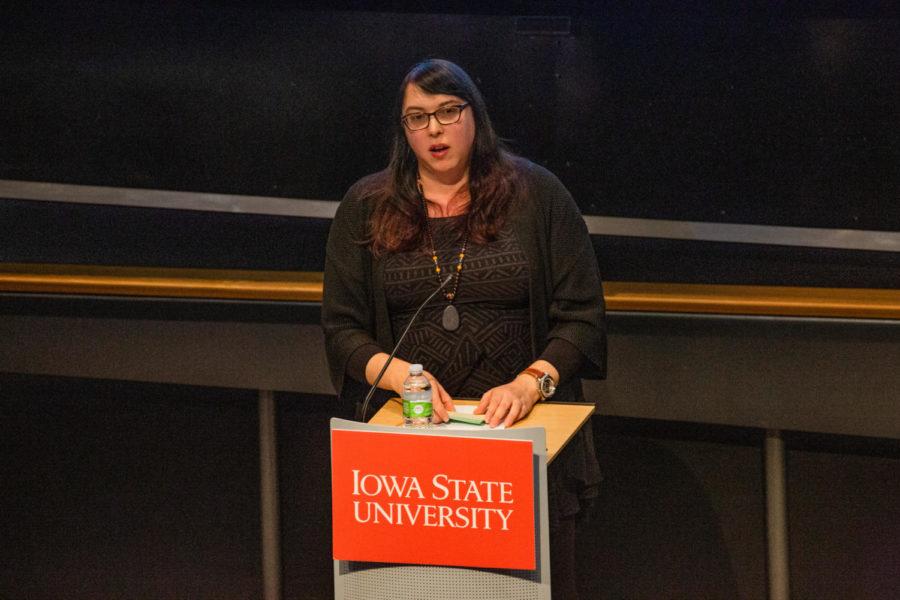Facebook security leader speaks on Virtual Reality at Engineers’ Week
David Boschwitz – david.boschwit
Facebook’s Kate McKinley gives a lecture on virtual reality and security as part of Iowa State’s E-Week lectures in Howe Hall Thursday. Kate is a veteran of the software industry, and spoke about the importance of starting software designs with security in mind when creating virtual and augmented reality applications.
February 21, 2019
As a part of Engineers Week, Kate McKinley gave a keynote lecture Thursday night discussing her work in virtual and augmented reality technology, along with her long career path with various companies and projects.
McKinley said that during her career she has worked with Netflix, Mozilla and iSEC as a security engineer and developer, working to primarily help with any security issues they might have been encountering.
Today, McKinley is a security leader at Facebook. According to Forbes magazine, Facebook bought Oculus VR for about two billion dollars a few years ago with the intent to design video games and other products using VR technology.
For the past couple of years, McKinley has been involved with projects at Facebook to develop augmented and virtual reality technology for the purpose of everyday use and also make sure that it can be safe from any harmful security malfunctions, especially regarding privacy policy.
“I think that we need to drive for more simple privacy policy; if it takes 20 minutes to read through your privacy policy, then it has a higher chance of leading to problems,” McKinley said. “We need to be able to express them in a language everyone can understand.”
McKinley said that since most of us have smartphones, we already have some experience with what they are trying to accomplish. She said the devices we already have do so much, and that augmented and virtual reality can help them do even more.
“It’s going to change the world in a way that is on par with smartphones,” McKinley said. “Anyone will be able to use them and hopefully they will be perfect.”
Outside of Facebook, virtual reality and augmented reality devices have been released by other companies like Samsung, who developed a headset designed to have your phone as the screen, and Sony, who designed the Playstation VR to be able to play video games in a more realistic style of play then before.
McKinley also talked about the recent violations of privacy abuse that have occurred, such as relationship partners installing software on the other’s device to track where they go, and people who are able to find personal information on others and call the police to their address pretending to be in a hostage situation.
“We know of all the different security and privacy problems that can occur on this technology,” McKinley said. “We are responsible for building and programming these applications to make them as safe as possible from any incidents from occurring.”
Kate also mentioned all the ups and downs that she has experienced while working with VR and AR technology, but says how it’s all for the goal of creating a device with endless possibilities for everyday use.







